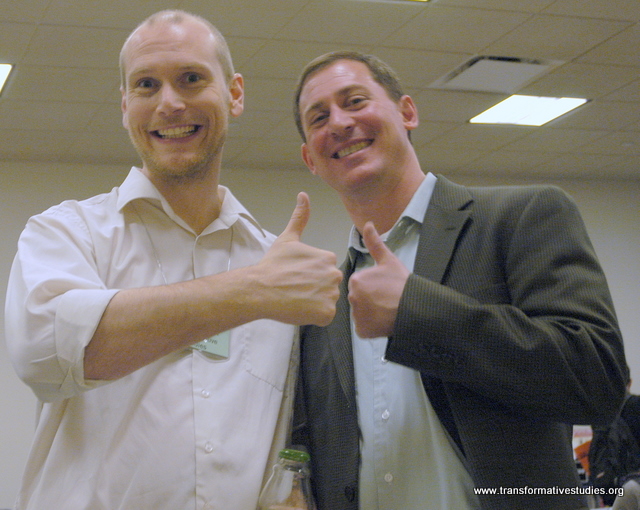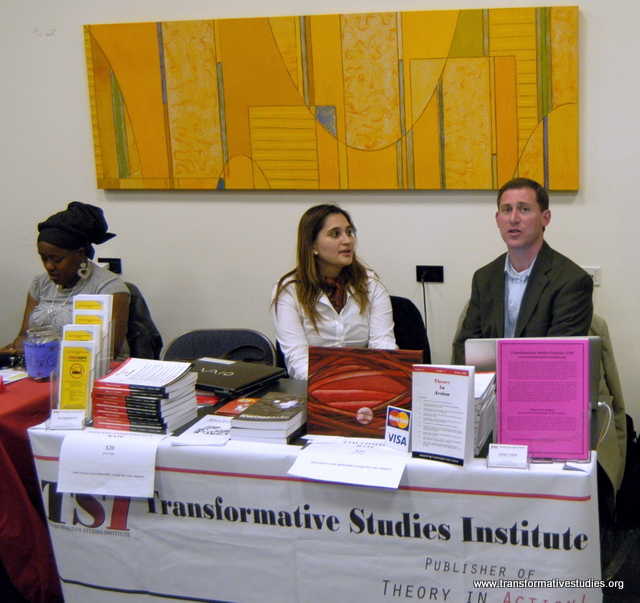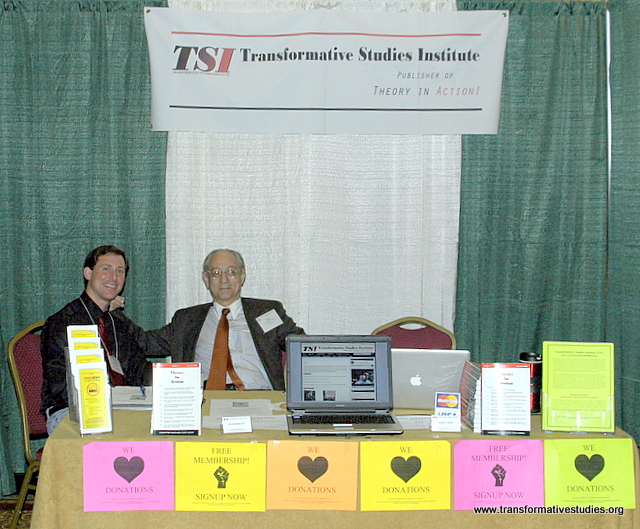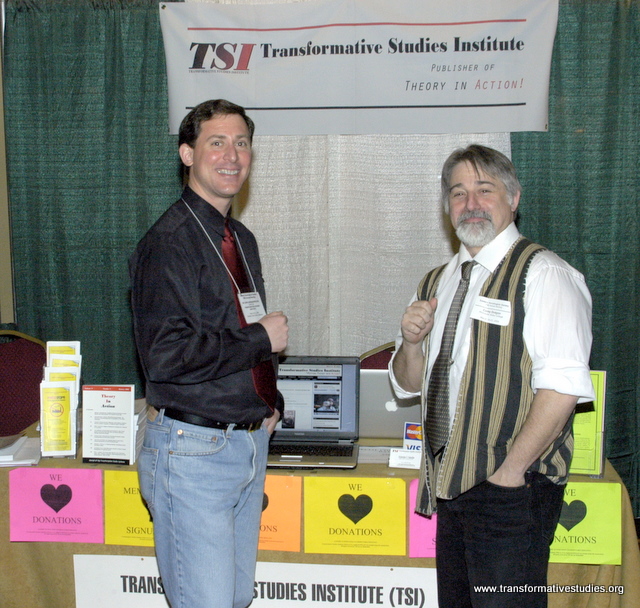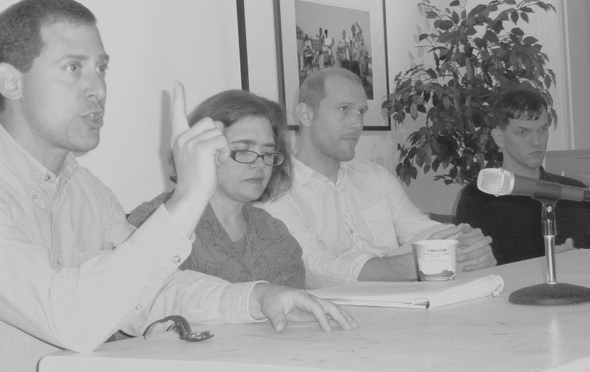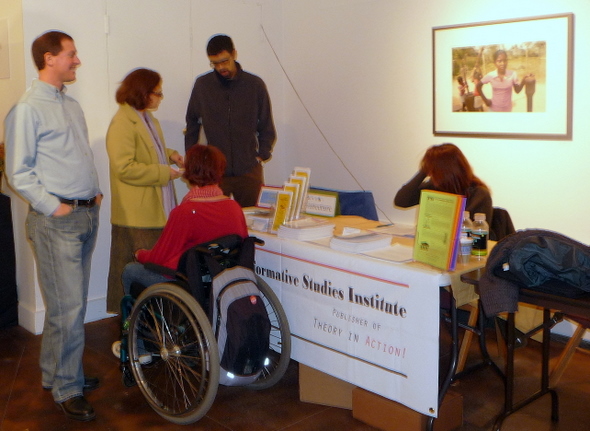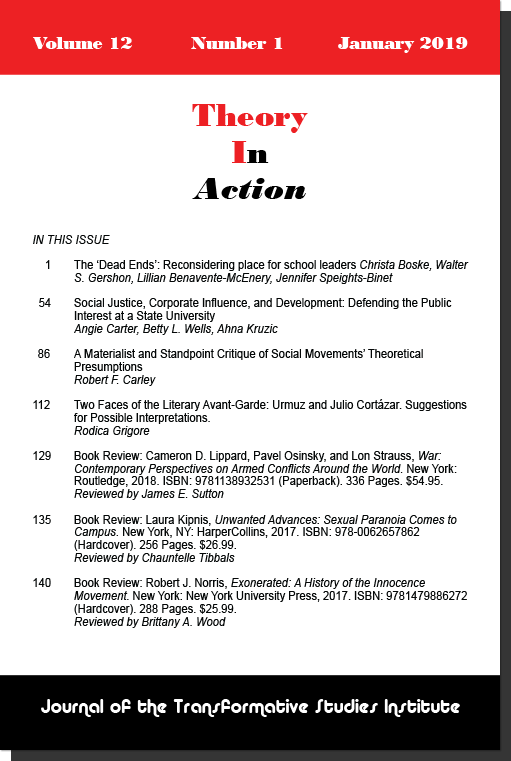Unless otherwise stated, all courses are 30 hours plus conferences, 3 credits.
COMMON CORE COURSES
COR 8100: Classical Theory
This is a survey course that will introduce students to the writings of major classical thinkers in sociology, economics, political science, history, and philosophy.
COR 8200: Contemporary Theory
This is a survey course that will introduce students to the writings of major contemporary thinkers in sociology, economics, political science, history, and philosophy.
COR 8201: Research Methods
The course will introduce students to major techniques and research methods used by social scientists such as ethnography, historical and statistical methods, designing and conducting questionnaires or interviews, etc.
COR 8202: Social Advocacy
The course examines basic principles, theories, and applications of social advocacy for underprivileged groups. The idea of social justice is analyzed, what it means and how to advocate for it. Students will learn how to advocate as individuals and through formal organizations including government agencies, nonprofits, and social movements. Topics and case studies will include the economically underprivileged, human rights, civil rights, and more.
COR 8203: Principles and Application of Ecological Theory
The course offers a critical evaluation of theory and application in the areas of ecological adaptation and system plasticity, spatial and temporal scales, ecological energetics, and system dynamics and a synthesis of ecological theory into testable principles. The course will start with historical perspectives on the development of ecological theory from the viewpoint of several disciplines including the contribution of historical development to the current state of theory and application. It will also cover evolutionary theories and their impact on ecological theory; Modes of selection and diversification, long term and short term evolution, and the consequences of variable environments; The contribution of paleoecology to modern ecological theory; The use of ecological systems theory in the definition of ecological principles; The influence of spatial and temporal scales on the properties and behavior of ecological systems, especially stability properties.
HUMAN ECOLOGY & ENVIRONMENTAL POLICY
En-route M.A.
Upon completing 45 credits with an average grade of B, passing the First Examination, and satisfactorily completing a major research paper, the student may apply for an M.A. degree.
ECL 8100: Ecosystems and Landscape Ecology
ECL 8101: Critical Animal Studies
ECL 8102: Population and Community Ecology
ECL 8103: Community Ecology
ECL 8104: Marine Ecology: Concepts and Practice
ECL 8105: Ecology and Agriculture
ECL 8200: Plant Population Biology
ECL 8201: Issues in Conservation Biology
ECL 8202: Spatio-Temporal Ecology
ECL 8203: Human Ecology of Agriculture
ECL 9100: Advanced Topics in Human Ecology
ECL 9101: Advanced Topics in Cultural Ecology
ECL 9102: Environmental Policy: Process & Evaluation
ECL 9103: Population, Environment, and Social Structure
ECL 9104: Conservation and Sustainable Development
ECL 9105: Analysis of a Selected Ecosystem
ECL 9106: Introduction to Ecological Genetics
ECL 9107: Theoretical Ecology
ECL 9200: Seminar
DIS 9300: Dissertation Supervision
1 credit
POLITICAL SCIENCE
The concentration in Political Science offers a community of scholars dedicated to acquiring, expanding, and transmitting reliable knowledge about political phenomena, its mission is to educate professional political scientists qualified for careers in academic institutions, governmental agencies, nonprofit organizations, and the private sector.
En-route M.A.
Upon completing 45 credits with an average grade of B, passing the First Examination, and satisfactorily completing a major research paper, the student may apply for an M.A. degree.
POL 8100: American Political Thought
POL 8101: Public Organizations
POL 8102: American Politics
POL 8103: International Relations
POL 8104: Foundations of Political Economy
POL 8200: Contemporary Political Thought
POL 8201: Modern Political Thought
POL 8202: International Organization
POL 8203: Comparative Political Economy
POL 8204: Citizen Participation & Community Organization
POL 8205: Public Policy
POL 8206: Comparative Political Institutions
POL 9100: Global Justice & Democracy
POL 9101: Democracy, Autocracy & Regime Change
POL 9102: Latin American Politics in Comparative Perspective
POL 9103: The Role of the Public Intellectual
POL 9104: Game Theory and Political Theory
POL 9105: Policy Analysis
POL 9106: U.S. Foreign Policy
POL 9107: Foreign Policy Analysis
POL 9200: Seminar
DIS 9300: Dissertation Supervision
1 credit
HISTORY
The History concentration is designed to train historians in the most rigorous canons of scholarly research. From the first semester of coursework through the final awarding of the doctorate, students will focus their energies on research and writing. In addition, students will take reading courses in their major and minor fields designed to prepare them for teaching careers and to establish the necessary background for their research.
En-route M.A.
Upon completing 45 credits with an average grade of B, passing the First Examination, and satisfactorily completing a major research paper, the student may apply for an M.A. degree.
HIS 8100: Ancient Political Theory
HIS 8101: The People’s History
HIS 8102: The People’s Economic History
HIS 8103: Women’s History
HIS 8104: Non-Caucasian History
HIS 8105: Asian History
HIS 8106: History of Science
HIS 8107: Literature of Modern Europe
HIS 8200: Athens and Sparta
HIS 8201: Roman Republican History
HIS 8202: Popular Revolts in Antiquity
HIS 8203: Popular Revolts 1800s-present
HIS 8204: Empire, Colonialism, and Beyond
HIS 8205: Urban History of the U.S., 1840-1940
HIS 8206: From the New Deal to the Great Society: U.S. Culture, Politics, Society, 1928-1972
HIS 9100: The History of Human Rights
HIS 9101: The Civil Rights & other Social Justice Movements
HIS 9102: Slavery, Exploitation, War Crimes, and Genocide in American History
HIS 9103: Revolution and Nation in Latin America
HIS 9104: Transnational Historiography and Research
HIS 9200: Seminar
DIS 9300: Dissertation Supervision
1 credit
ECONOMICS
The concentration in Economics is designed to educate future researchers and teachers who will contribute to the development and application of knowledge in ethical economics. The program emphasizes the development of research skills and the acquisition of knowledge in specialized fields of the students’ choice. The focus of the program is to prepare students to apply economic theory and technique to the problems of social justice and government. Students completing the program are prepared for careers in academic institutions, governmental agencies, nonprofit organizations, and the private sector.
En-route M.A.
Upon completing 45 credits with an average grade of B, passing the First Examination, and satisfactorily completing a major research paper, the student may apply for an M.A. degree.
ECN 8100: Macroeconomic Theory I
ECN 8101: Microeconomic Theory I
ECN 8102: Natural Resource and Environmental Economics
ECN 8103: The Economics of Race, Ethnicity, and Sexual Identity
ECN 8104: Labor Economics
ECN 8200: Macroeconomic Theory II
ECN 8201: Microeconomic Theory II
ECN 8202: Statistics for Social Scientists
ECN 8203: History of Economic Thought
ECN 8204: The Grass-roots Economy
ECN 8205: Public Finance
ECN 9000: Sustainable and Ethical Development
ECN 9001: Monetary Theory and Policy
ECN 9101: International Trade Theory & Policy.
ECN 9102: Global Economic Policy
ECN 9103: Bankers, Financiers, and Class Domination: A Historical Review
ECN 9104: Economics of Exploitation
ECN 9105: Capitalism, Contradictions, and Collapse
ECN 9106: Alternative Structures: Socialist, Communist, and Anarchist Economics
ECN 9107: The Political Economy of Collective Action.
ECN 9200: Seminar
DIS 9300: Dissertation Supervision
1 credit
SOCIAL JUSTICE & ADVOCACY
En-route M.A.
Upon completing 45 credits with an average grade of B, passing the First Examination, and satisfactorily completing a major research paper, the student may apply for an M.A. degree.
SJA 8100: Critical Pedagogy
SJA 8101: Community Organizing
SJA 8102: Labor Organizing and Union Building
SJA 8103: Advocating for the Disprivileged and Oppressed
SJA 8200: Advocacy Law
SJA 8201: Labor Law & Rights
SJA 8202: Civil Rights Law
SJA 8203: International Human Rights
SJA 8204: Nonprofit Management
SJA 8205: Finding and Implementing Resources
SJA 8206: Public Relations, Building Support & Alliance Formation
SJA 8207: Social Services
SJA 9000: Navigating the Political System
SJA 9001: Protest Basics
SJA 9100: Fighting Powerful Interests
SJA 9101: Popular Struggles through Literature
SJA 9102: The Role of Art in Social Movements and Change
SJA 9103: Social Movement Building
SJA 9104: The Theory and Practice of Direct Action
SJA 9105: The Theory and Practice of Revolution
SJA 9200: Seminar
DIS 9300 Dissertation Supervision
1 credit
SOCIOLOGY
The Sociology concentration develops sociologists of broad theoretical background and demonstrated research competence. The program is particularly strong in macrosociological, historical, and comparative approaches. Methodologically, the program seeks a balance between quantitative and qualitative techniques. Throughout the program, faculty interest is strong in patterns of social inequality, whether in families, workplaces, or societies.
En-route M.A.
Upon completing 45 credits with an average grade of B, passing the First Examination, and satisfactorily completing a major research paper, the student may apply for an M.A. degree.
SOC 8100: Classical Sociological Theory
SOC 8101: Family, Sex Roles, and Social Change
SOC 8102: Critical Pedagogy
SOC 8103: Sociology of Law
SOC 8104: Mass Culture, Art, & Change
SOC 8200: Contemporary Sociological Theory
SOC 8201: Quantitative Research Methods
SOC 8202: Qualitative Research Methods
SOC 8203: Urban Sociology
SOC 8204: Issues in Community Research
SOC 8205: Social Stratification
SOC 8206: Sociology of the State
SOC 9000: Sociology of Mass Movements
SOC 9001: Collective Behavior
SOC 9002: International Political Economy
SOC 9100: Marxist Theories
SOC 9101: Anarchist Theories
SOC 9102: Comparative Social Systems
SOC 9103: Sociology of Labor and Labor movements
SOC 9104: Necessary Illusions: Propaganda & Public Opinion
SOC 9105: Political Sociology and Revolutionary Change
SOC 9200: Seminar
DIS 9300: Dissertation Supervision
1 credit


